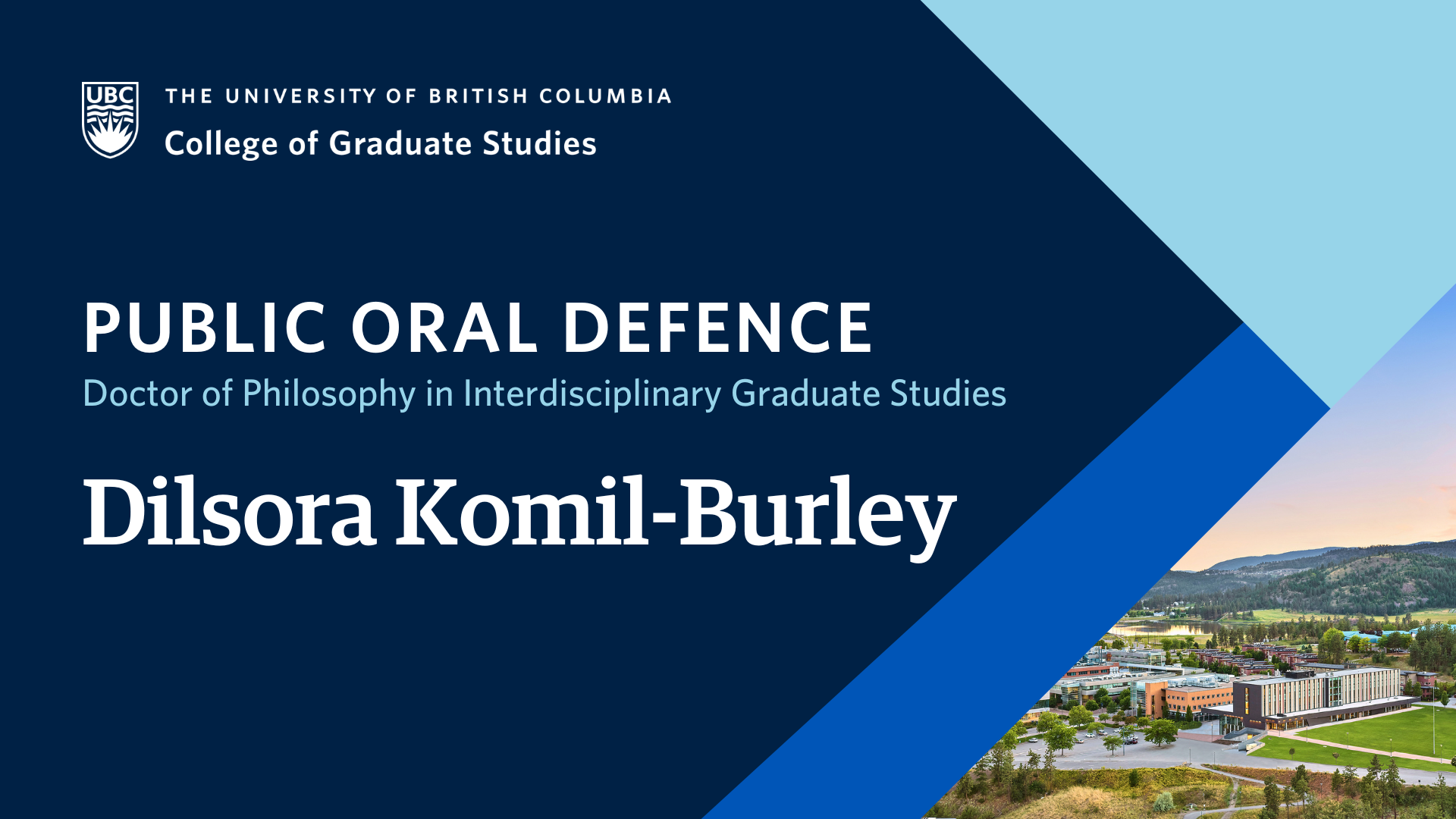
- This event has passed.
Doctoral Examination: Islamic revivalism, radicalism and the paradoxical governance of Islam in Uzbekistan
March 10, 2023 at 1:00 pm - 4:00 pm

Dilsora Komil-Burley, supervised by Dr. Bonar Buffam & Dr. Luís Aguiar, will defend their dissertation titled ” Islamic revivalism, radicalism and the paradoxical governance of Islam in Uzbekistan” in partial fulfillment of the requirements for the degree of Doctor of Philosophy in Interdisciplinary Graduate Studies.
An abstract for Dilsora’s dissertation is included below.
Examinations are open to all members of the campus community as well as the general public.
Registration is not required for in-person defences.
ABSTRACT
The term Islamic revivalism is often applied to the Islamic activism that seeks renewed attention to Islamic faith, a restored commitment to Islam, and religious sensibilities that contemporary Muslim societies develop (Mahmood, 2005). Islam was a matrix in which socio-political culture was produced, prior the installment of the Soviet government in Central Asia. During the soviet rule, however, mosques, learning centres and religious texts were destroyed, religious practices suspended, Islamic legal systems abolished, and many Islamic leaders were persecuted (Khalid, 2007). Islamic revivalism started to root with the establishment of the Spiritual Administration of the Muslims of Central Asia and Kazakhstan (SADUM) in the former Soviet Union in1943, while the Soviet assault on Islam continued. The forceful revival of Islam became observable at the end of 1980s in Uzbekistan and continuing to revive as a religion, cultural identity, moral guidance, and dominant ideology (Rashid, 2002; Roy, 2000; Babadzhanov, 2015; Voll, 1994).
I conducted multi-method qualitative research to study the complex processes of the revival of Islam, including the lingering effects of the seventy years of the Soviet rule, the role of the social media in the Islamic revival and radicalization, and the relationship between the secular state and Islam in Uzbekistan. Viewing Islamic revival as a complex phenomenon, I examine the re-establishment of official Islam and the generalization of all other forms of Islam as “adashganlar” – Muslims on “the wrong path.” I argue that the politically motivated and radical Islamic groups exist in Uzbekistan; however, the threat they posed exaggerated by the Karimov government to control Islam and to justify the harsh repression against Muslims. I use a relational approach to frame the repertoire of exchanges and dialectical radicalization between the state and Islam. Building on recent work in critical secular studies (Mahmood, 2017; Gole, 2015; Kosmin, & Keysar, 2007; Kuru, 2013; Mufti, 2004), I examine the hidden realities that help to understand what secular means in Uzbekistan.
Uzbekistan represents a unique case for the study of Islamic revival because of the Soviet experience (Khalid, 2007), the appearance of powerful political Islam in the Ferghana Valley in 1990s, the formation of the Islamic Movement of Uzbekistan (IMU), one of the deadliest terrorist organization, the arrival of foreign Islamic missionaries in the early 1990s and spreading various doctrines of Islam in the country, resulting the reconstruction of official Islam and the harsh repression against all other forms of unofficial Islam. I call it the paradoxical governance of Islam in Uzbekistan.